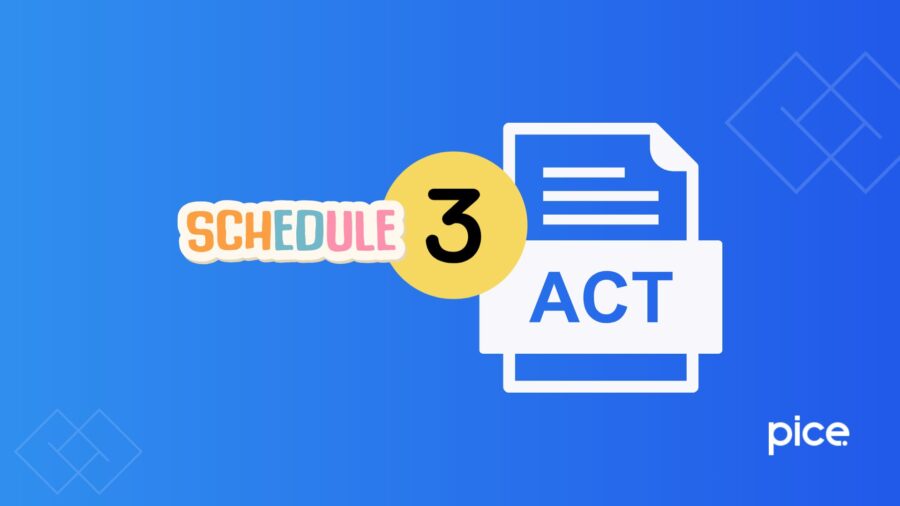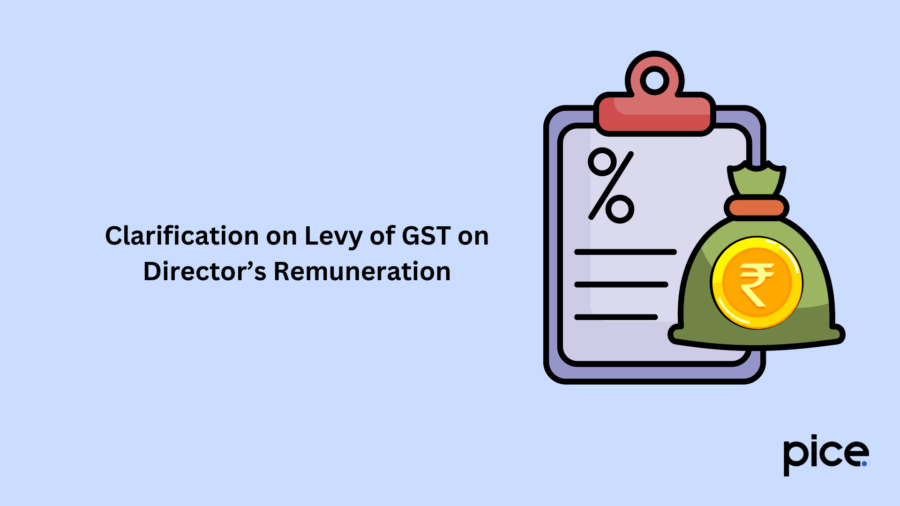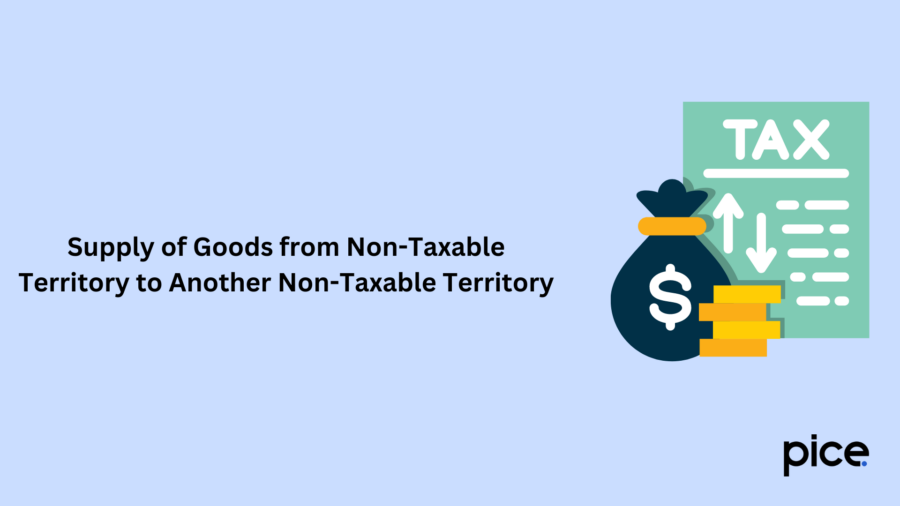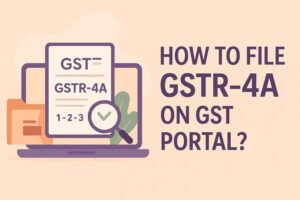Purposes of Schedule 3 of CGST Act Services
- 3 Oct 24
- 14 mins

Purposes of Schedule 3 of CGST Act Services
- Services by an Employee to the Employer in the Course of Employment
- Amount Paid to Employee on Premature Termination of Employment is not Taxable
- Clarification on Levy of GST on Director’s Remuneration
- Whether All the Directors Including the Managing Director is an Employee or not?
- Services by the Supreme Court, Lower courts or Tribunal
- Services Provided by Consumer Disputes Redressal Commission (CDRC) is Exempt from GST
- Functions Performed by MP, MLA, etc. Under Statutory Functions
- Duties Performed by Person in His Post Under Constitution Capacity
- Duties performed by Chairperson/ Member/ Director in a Body Established by or Under any Central or State Act
- Services of Funeral, Burial, Crematorium or Mortuary
- Sale of Land & Building Except Under-construction Building
- Actionable Claims Other than Lottery, Betting and Gambling
- Supply of Goods from Non-Taxable Territory to Another Non-Taxable Territory
- Sale from Custom Warehouse or High Sea Sale
- Sale from Custom Warehouse
- Conclusion
Key Takeaways
- Employee services to employers are not taxable under Schedule III of the CGST Act.
- Director's remuneration is taxable unless classified as salary in company accounts.
- Notice pay recovery is taxable if tied to tolerating an employee’s act.
- Sale of land, buildings, funeral services, and most actionable claims are GST-exempt.
- Goods supplied between non-taxable territories, including high sea sales, are GST-exempt.
Under the GST regime, Schedule 3 of CGST Act plays a crucial role in determining activities which qualify neither as a supply of goods nor as a supply of services. It outlines activities that do not come under the ambit of GST. These are services like actionable claims, sale of land, funeral services, etc.
Schedule III activities under the CGST Act come under services and transactions that are exempted from taxation. Therefore, tax cannot be levied against such activities. In this blog, we will discuss the purpose of Schedule 3 services, discuss services by an employee to employer in the course of employment, classify the levy of tax on a director's remuneration and other important aspects.
Services by an Employee to the Employer in the Course of Employment

As per Schedule III Services of the CGST Act, services by an employee to employer, in the course of their employment are not taxable. However, GST laws state that tax can be levied against remuneration towards an independent director or other non-executive directors. As per the reverse charge mechanism, since directors are not employees of the company, remuneration provided for services from employees is subject to tax.
GST is applicable for any services by employee to employer. According to Entry 2 of Schedule I of GST Valuation Rules, any activity in relation to the employer to employee is taxable, except gifts up to ₹50,000. Any service on contract basis given by an employee to an employer is not taxable unless specified.
Additionally, any payment made by an employer to an employee for not joining a business is considered as compensation for the service of forbearance to act and cannot be treated as providing services within the course of employment. Moreover, casual workers that security service agencies hire for the provision of security services to a client are also services.
Amount Paid to Employee on Premature Termination of Employment is not Taxable
Employment services are not taxable according to the GST laws. As notice pay recovery is in the contract of employment, GST can not be charged against it. However, as per CGST Act, Schedule II - activities some transactions are considered as supply of services and goods. This includes “Agreeing to the obligation to refrain from an act or to tolerate an act or a situation” within the ambit of employment.
If the employee receives the notice pay for not serving the notice period after termination of employment, it implies tolerating the act of an employer. In that case, the notice pay recovery is taxable under GST. The notice pay recovery is not subject to taxation if there is no agreement for tolerating an employee's act in the notice pay policy.
Some of the important decisions highlighting circumstances under which notice pay recovery is not taxable are listed below:
- Allahabad CESTAT, in the case of M/s. HCL Learning Systems v/s CCE, Noida, declared that the amount reclaimed from the salary already paid is not liable for GST
- In the case of M/s. Gujarat State Fertilisers and Chemical Ltd., Order of Commissioner (Appeals) stated that termination of employment will be considered as employment service that is not subject to GST.
Clarification on Levy of GST on Director’s Remuneration

The director's remuneration is basically a compensatory amount the company gives for the services the directors provide. This amount can be either in the form of salary, fees or the company's assets. The CGST circular no. 140/2020 on June 10th, 2020 clarifies the applicability of GST on a director’s remuneration and clearly outlines the criteria to determine whether a director is classified as an employee or not.
According to CGST, services from employee to the employer in the contract of employment are neither supply of goods nor services. Therefore, they are not subject to GST. However, if the services do not come under the employee to employer relationship i.e. contract of service, GST is charged against such remuneration. In such cases, the company needs to pay the GST on a reverse charge basis to the government under Notification No. 13/2017.
It is important to note the portion of an employee Director’s remuneration that is listed separately from "salaries" in the company’s accounts and is subject to TDS under Section 194J of the IT Act as Fees for Professional or Technical Services will be considered as payment for services. As such, it falls outside the scope of Schedule III of the CGST Act and is therefore taxable.
Whether All the Directors Including the Managing Director is an Employee or not?
The director’s remuneration is issued in consultation with the Board of Directors and shareholders. A director can be an Executive Director, Managing Director, or Independent Director, depending upon their dual capacities in the company.
A director's activity in relation to an employee is considered only when:
- The director’s activities are in the course of relation to employment in terms of Schedule III of the CGST Act.
- A director’s salary is liable to TDS under Section 192 of the Income Tax Act.
- Their salary is accounted for in the Accounts book under “Salaries”.
GST is not charged on the director’s remuneration if any of the above three conditions are met.
The director is not considered to be an employee when:
- The director’s services are strictly professional like the director of the company. This applies to directors irrespective of their name and designation.
- A director’s salary is liable to TDS under Section 194J of the Income Tax Act.
- The salary of the director must be considered in the accounts book under any head barring “Salaries”.
GST at the rate of 18% applies to the remuneration of a director if any of the conditions are met. This falls under the reverse charge mechanism of GST.
Services by the Supreme Court, Lower courts or Tribunal
Tribunal services or courts, like the High Court, District Court, or Supreme Court of India, will not levy GST to pass their judgment. However, services towards any business organisation by an arbitral tribunal are liable to GST on a reverse charge basis.
Services Provided by Consumer Disputes Redressal Commission (CDRC) is Exempt from GST
As per the Central Board for Excise and Customs, the fees that litigants pay in the Consumer Disputes Redressal Commission are not subject to taxation. Penalties imposed by or payments made to these Commissions will also be exempted from GST.
Functions Performed by MP, MLA, etc. Under Statutory Functions
As per the laws of GST, no tax shall be levied against the duties performed by Members of Parliament, State/ District legislatures and panchayats. Even the duties performed by municipality workers, or members of the local public authorities, are not taxable under the GST laws.
Duties Performed by Person in His Post Under Constitution Capacity

Responsibilities carried out by any individual holding a post in pursuance of the provisions of the Constitution in that role. They can be Prime Minister, President, Vice President, Chief Justice, Speaker of the Lok Sabha, Chief Election Commissioner, etc. As per the GST rules, tax can only be levied on such duties if they are performed for business purposes.
Duties performed by Chairperson/ Member/ Director in a Body Established by or Under any Central or State Act
If a Chairperson/Member/Director in a government-established body of persons like the Auditor General of India or the Union Public Service Commission or a district commission is not an employee his/her duties are not taxable. According to the CGST Act, tax can be levied on the duties of a Chairperson /Member/Director in a government-established body only if the duty is performed towards a business entity.
Services of Funeral, Burial, Crematorium or Mortuary
Funeral, burial, cremation, or mortuary services, including the transport of the deceased, are exempt from tax, according to the laws of GST. The transportation charges and funeral services of the deceased, irrespective of religion, are not taxable as well by the government.
Sale of Land & Building Except Under-construction Building
Sale transactions of land used for any purpose are exempted from tax under GST. A sale of building that is fully constructed for any reason is not subject to GST either, given it comes under the purposes of paragraph 5(b) of Schedule II of the CGST Act.
As per Schedule III, services rendered for the construction of new buildings are subject to tax, as they come under contract for service agreement. Therefore, before issuing a completion certificate, if the sale agreement is issued, tax can be levied on the sale of the building. However, as per Schedule II of the CGST Act, developmental charges on any developed land are subject to GST.
Actionable Claims Other than Lottery, Betting and Gambling
Actionable claims refer to claims that can only be enforced by the law. Under GST, the definition of ‘Goods’ includes actionable claims, excluding money. An actionable claim refers to a claim to any debt (excluding those secured by a mortgage of immovable property or by hypothecation or pledge of movable property) or to any beneficial interest in movable property that the claimant does not actually or constructively possess.
Examples of actionable claims include claim for arrears of rent, bills of exchange, bank guarantee, right to contract, etc.
A promissory note or a bill of exchange cannot be sold. As per the Negotiable Instruments Act, they can be transferred by endorsement of documents, delivery, production of documents or transfer of document. Therefore, immovable property neither classifies as the supply of goods nor does it classify as supply services. A book debt, or a debtor, cannot be sold according to the Transfer of Property Act. It can only be transferred. Thus, it does not qualify as goods or services under GST laws.
However, as per Schedule III of the CGST Act, actionable claims are neither treated as goods nor services, and they are considered substitutes for money. Consequently, GST does not apply to these activities. Nevertheless, there are exceptions for actionable claims, such as lottery, betting, and gambling, which are subject to a higher GST rate.
Nevertheless you must note that there are a few exceptions. Lottery, betting and gambling are subject to tax at much higher rates. A lottery is classified as the supply of goods. On the other hand, betting and gambling come under the category of supply of services.
Supply of Goods from Non-Taxable Territory to Another Non-Taxable Territory

Supply of goods from one non-taxable territory to another without touching the borders of India is exempt from tax as per the CGST Act. This kind of supply of goods is also called Third-Country Export.
Supply of goods is subject to GST only if the goods are supplied from a non-taxable territory to India. Frequent supplies in bulk are not recognised as “supply” by the CGST Act.
Therefore, they do not attract tax. Such supplies include merchant trading, sales on the high sea, sales of goods in customs duty on bonded warehouses, and so on.
Sale from Custom Warehouse or High Sea Sale
Sale from Custom Warehouse or high sea sales from one non-taxable territory to another is exempt from GST as per Schedule III of the CGST Act. Until the goods enter the Indian port of import, they are not taxable goods. Since these supply of services are not considered “supplies” by Clause 7 of Schedule III of the CGST Act, no tax is levied on them.
However, if the final buyer is from outside India and services are rendered with the supply of goods, the services are taxable. The tax is charged on the supply of services from a port of origin located outside India to another location outside India. Therefore, supply of services such as marketing and transport are subject to GST.
If the buyer’s origin is in India, they are liable to pay Integrated Goods and Services Tax (IGST) as per GST Council. Tax will be charged on import declaration for clearance from the customs duty. According to Clause 8, Schedule III of the CGST Act, the supply of goods from customs warehouses is exempt from GST. Tax is not imposed on high sea sales, as they neither qualify as a supply of goods nor services.
Territorial waters run up to 12 nautical miles from the Indian coast into the sea. Payment of Import duty is done once the goods start entering Indian waters as a domestic sale transaction. Therefore, high sea sales are not subject to BCD or Basic Custom Duty. It is a tax imposed upon the import of goods under the 1962 Customs Act for payment of import duty, which is charged at 10%.
Sale from Custom Warehouse

Supply of goods from a place that is outside of the custom warehouse to any person before clearance for home consumption will not be taxable, irrespective of the location of the supplier or recipient.
As per Clause 8 of Schedule 3, the supply of goods by a consignee to the recipient after the goods have been dispatched from the port of origin located outside India to any person before clearance for home consumption does not fall under the definition of supply.
However, it must be kept in mind that goods imported into India are subject to certain taxes under the GST Act and the 1962 Customs Act. These taxes include Basic Custom Duty (BCD), Integrated Goods and Services Tax (IGST) and Cess (Education Cess and Compensation Cess). These taxes are levied on goods that are imported to India at applicable rates.
Conclusion
The exemptions mentioned in Schedule 3 of CGST Act, streamline the tax administration in India and avoid high tax burdens on some activities. Being aware of these exemptions helps businesses and individuals to comply with GST laws and avoid tax liabilities.
Additionally, the outline of activities that are out of the score of GST provides clarity and helps taxpayers and businesses avoid disputes with authority.
💡If you want to streamline your payment and make GST payments, consider using the PICE App. Explore the PICE App today and take your export business to new heights.
 By
By 

















